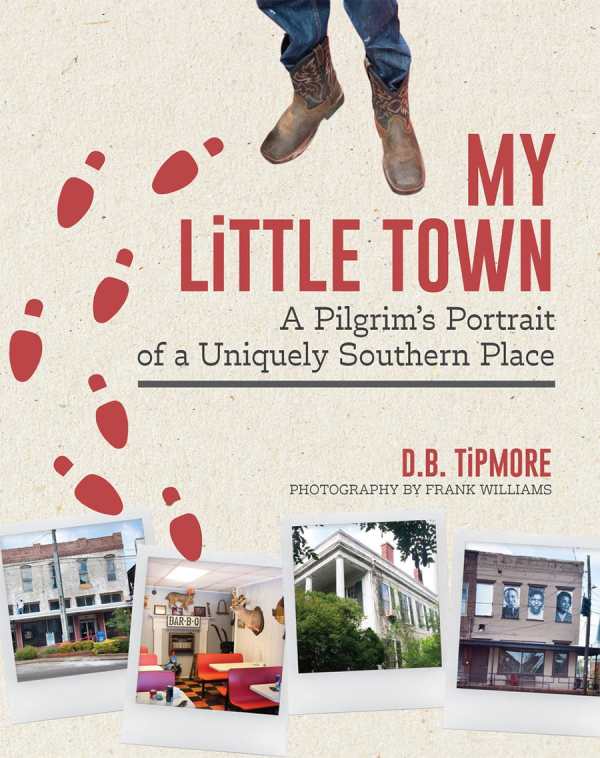My Little Town
A Pilgrim's Portrait of a Uniquely Southern Place
D. B. Tipmore’s endearing memoir, My Little Town, is perceptive in addressing rural Southern living.
Tipmore, a white Northerner, moved to Marion, Alabama, and his bemused and conversational narrative is candid in observing his adopted town. The book’s introduction of the town is engaging, incorporating geographical and historical facts to shed light on the politics, religion, race relations, and culture of Marion. Tipmore’s observations suggest tribalism and fear of change, both of which threaten Marion’s future. Throughout, he seeks to understand the town, even while in exile there.
In decaying Marion, Black and white citizens are seen tiptoeing past one another; historic grievances affect every aspect of life. But despite its poverty, empty storefronts, and peeling paint—all reminders of Marion’s succession of broken dreams—Tipmore also witnesses Marion’s deep bonds and traditions. The book’s anecdotes capture rich exchanges to reveal the town’s idiosyncrasies—aspects of it that Tipmore only noticed following prolonged exposure to its people. He records a host’s pre-party jitters, for example, to point to mine fields of rigid social customs; he attests to humorous local battles over recipes and turf at church and garden club socials.
Evocative descriptions capture August days when “the air is heavy with a scrim of red dust,” during which “a hot breeze rustles the leaves of the pecan and magnolia trees” and cardboard hand fans featuring Jesus and the Baptist Church were sold outside of the Black barber shop, while literary excerpts from the likes of William Faulkner and V. S. Naipaul punctuate the deep, abiding nature of local scars.
Set in a sleepy Southern community, My Little Town is an outsider’s memoir whose observations are fair and measured, infused with both empathy and poetry.
Reviewed by
Wendy Hinman
Disclosure: This article is not an endorsement, but a review. The publisher of this book provided free copies of the book to have their book reviewed by a professional reviewer. No fee was paid by the publisher for this review. Foreword Reviews only recommends books that we love. Foreword Magazine, Inc. is disclosing this in accordance with the Federal Trade Commission’s 16 CFR, Part 255.

